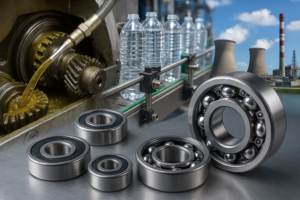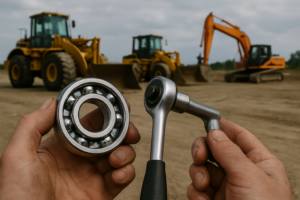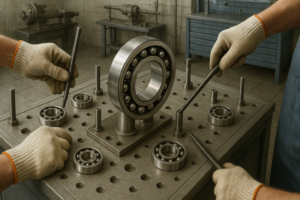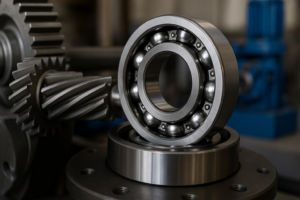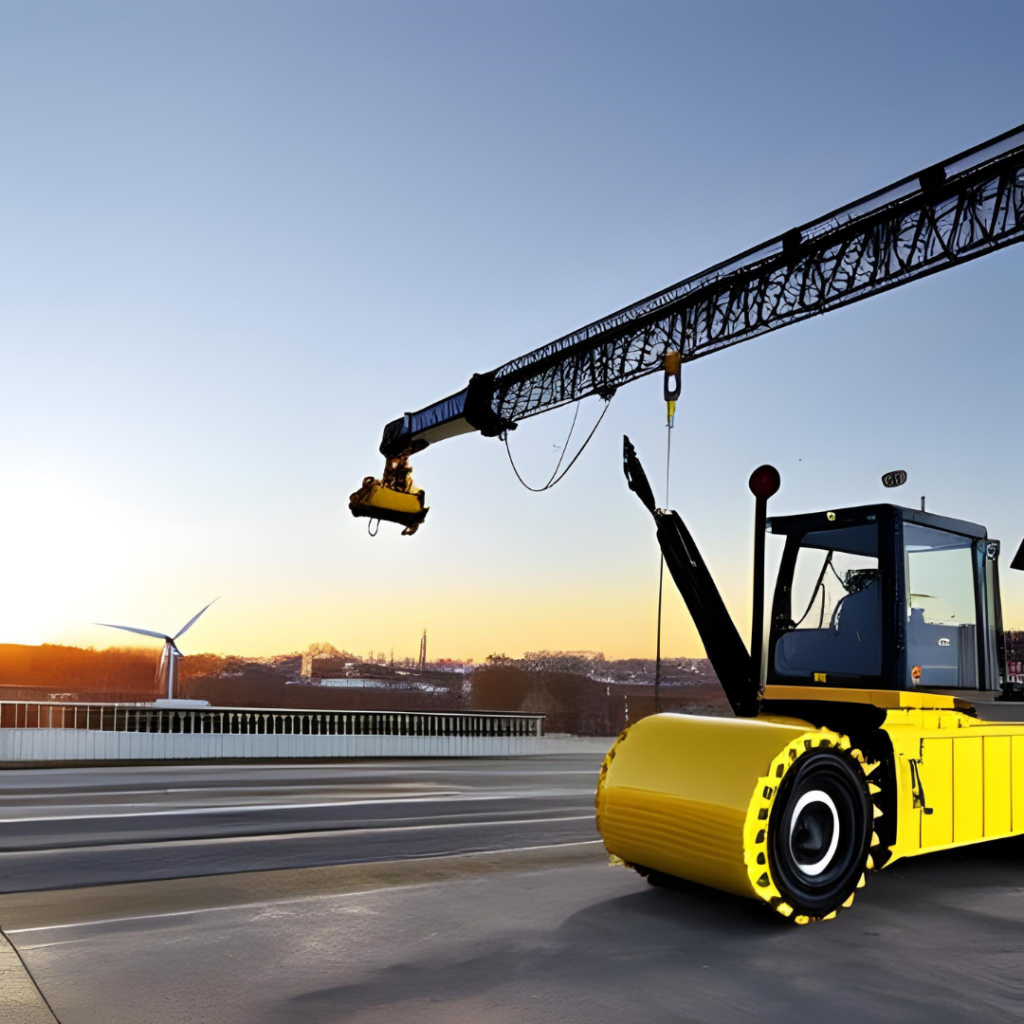In the intricate world of heavy machinery, where colossal forces meet demanding tasks, one name stands out as a steadfast companion: ZNL Bearings. As industries like construction, mining, and manufacturing rely on machinery that performs under extreme conditions, the role of bearings becomes paramount. ZNL Bearings has been at the forefront of delivering reliability and performance to heavy machinery, ensuring seamless operations in the face of challenges that would daunt lesser components. In this blog, we’ll delve into the indispensable role of ZNL Bearings in heavy machinery, exploring their critical functions, the hurdles they overcome, and strategies that ensure unwavering performance.
The Backbone of Heavy Machinery: Bearings
Imagine a construction site without excavators, cranes, or bulldozers – it’s hard to picture, right? These massive machines perform tasks that would be near-impossible for human labour alone. But what allows these machines to move seamlessly, lift tons of material, and perform precise operations? It’s the intricate network of bearings concealed within their structures.

Bearings are mechanical components that enable smooth and controlled motion between two moving parts, reducing friction and ensuring efficient energy transfer. In heavy machinery, where forces can be immense and operational environments severe, the performance of bearings is pivotal.
Challenges in Heavy Machinery Applications
Heavy machinery environments present a unique set of challenges that bearings must conquer to maintain reliability:
- Extreme Loads: Heavy machinery is designed to handle massive loads. Bearings must bear these forces without succumbing to premature wear or failure.
- Harsh Environments: Construction sites, mines, and similar locales are often dusty, muddy, and filled with debris. Bearings need to fend off contaminants that could compromise their functionality.
- Vibrations and Shocks: Constant vibrations and sudden shocks from heavy impacts can lead to fatigue and stress on bearings, shortening their lifespan.
- Temperature Fluctuations: Many heavy machinery operations occur in environments with extreme temperature fluctuations. Bearings must operate efficiently across this wide range.
- Corrosion: Machinery operating near water bodies or in corrosive atmospheres face the additional challenge of preventing bearing corrosion.
- Lubrication Maintenance: Adequate lubrication is essential to reduce friction and wear. However, maintaining proper lubrication in challenging environments requires careful attention.
Strategies for Ensuring Bearing Reliability

- Selecting the Right Bearings: The choice of bearing type is crucial. Engineers must select bearings that match the specific requirements of the machinery and its operational environment. This includes considerations of load capacity, rotational speed, and resistance to environmental factors.
- Material Matters: Bearings are available in various materials, including steel, ceramics, and polymers. For heavy machinery, high-quality steel bearings with superior load-bearing capacity are often preferred.
- Sealing and Protection: Robust sealing mechanisms keep out contaminants and moisture. Innovative designs and materials for seals and shields contribute to extended bearing life.
- Advanced Lubrication: Optimal lubrication significantly impacts bearing longevity. Heavy machinery demands specialized lubricants that can withstand extreme conditions and maintain a stable film between moving surfaces.
- Condition Monitoring: Implementing condition monitoring systems can detect early signs of bearing wear or damage, allowing for timely maintenance and replacements. This minimizes unexpected downtime.
- Regular Maintenance: Scheduled maintenance routines that include inspection, lubrication, and potential replacement of worn bearings are essential for prolonging machinery life.
Bearing the Future: Technological Innovations
The world of bearings is not stagnant. Technological advancements are continuously shaping the landscape of heavy machinery bearings:
- Smart Bearings: Embedded sensors provide real-time data on bearing condition, allowing for predictive maintenance and minimizing unplanned downtime.
- Self-Lubricating Bearings: Bearings with built-in lubrication systems reduce the need for manual lubrication and extend maintenance intervals.
- High-Temperature Bearings: Advancements in materials allow bearings to withstand higher temperatures, expanding their range of applications.
- Corrosion-Resistant Bearings: Bearings with coatings and materials that resist corrosion are becoming essential in industries with aggressive environmental conditions.
Conclusion: The Unseen Power of ZNL Bearings
As heavy machinery undertakes the monumental tasks that define progress, ZNL Bearings remains the unsung hero that keeps these operations running seamlessly. From towering cranes to earth-shifting bulldozers, ZNL Bearings are the backbone, ensuring reliability, safety, and efficiency in every move. As the heavy machinery landscape evolves with technology, ZNL Bearings stands strong, continuously innovating to meet new challenges and to redefine the standards of reliability in heavy machinery. So, next time you witness the majesty of these machines, remember that Bearings are the hidden force that keeps them moving forward, tirelessly supporting industries that shape our world.





